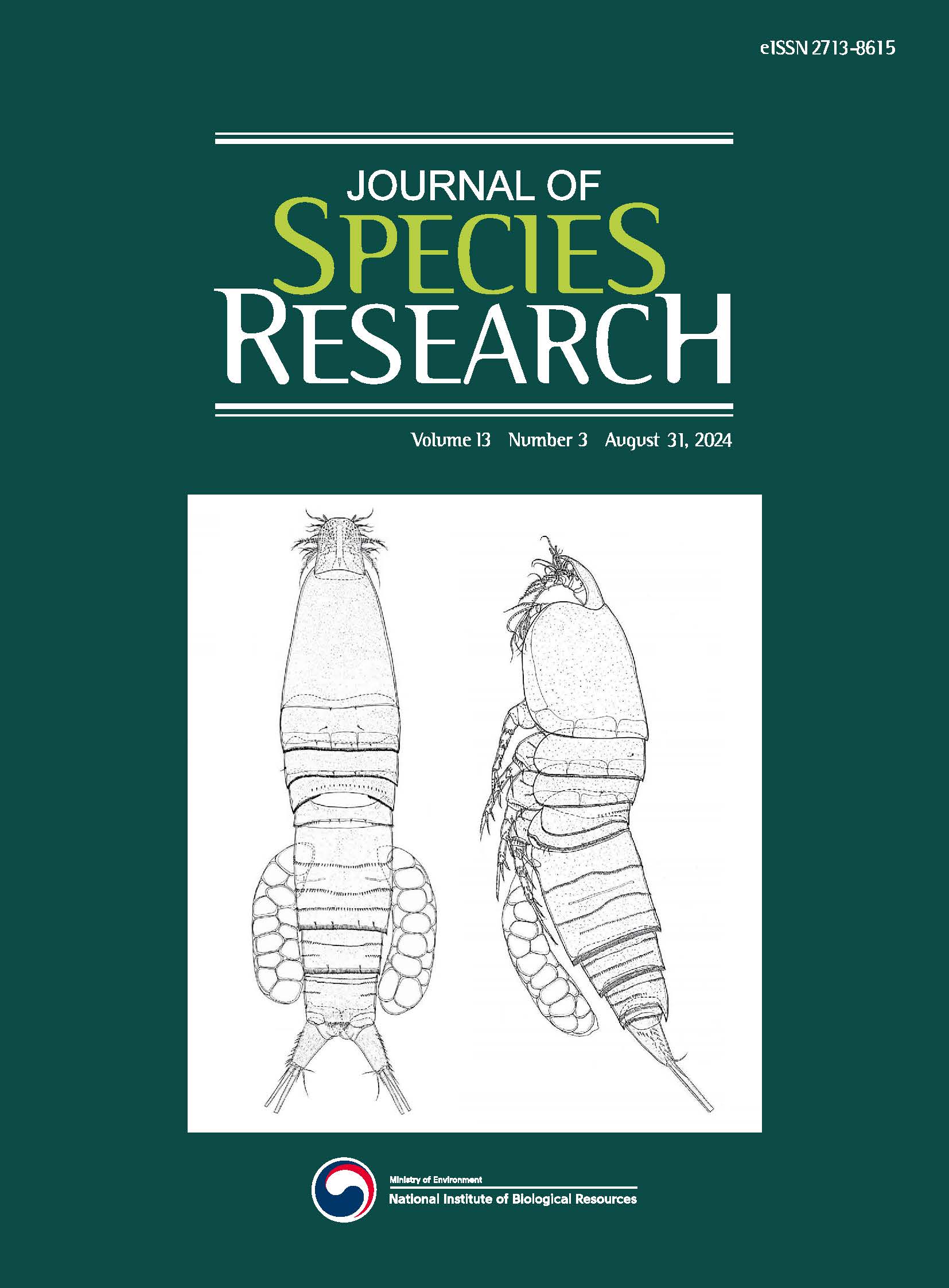- KOREAN
- E-ISSN2713-8615
- KCI
 E-ISSN : 2713-8615
E-ISSN : 2713-8615
A report of 20 unrecorded bacterial species isolated from the coastal area of Korean islands in 2022
Yeonjung Lim (Inha University)
Sumin Kim (Inha University)
Hyunyoung Jo (Inha University)
Mirae Kim
JANGCHEON CHO
Abstract
Bacterial communities inhabiting islands play a vital role in the functioning and formation of a unique, isolated ecosystem. Nevertheless, there has been a lack of systematic research on the indigenous microbiological resources of the islands in Korea. To excavate microbial resources for further studies on the metabolism and biotechnological potential, a standard dilution plating was applied to coastal seawater samples collected from islands along the west coast of the Korean Peninsula, including Deokjeokdo, Baengnyeongdo, and Daebudo in 2022. A total of 2,007 bacterial strains were isolated from the samples as single colonies and identified using 16S rRNA gene sequence analyses. A total of 20 strains, with ≥98.7% 16S rRNA gene sequence similarity to bacterial species having validly published names but not reported in Korea, were designated as unrecorded bacterial species in Korea. The unrecorded bacterial strains were phylogenetically diverse and belonged to four phyla, five classes, 12 orders, 17 families, and 18 genera. The unreported species were assigned to Algimonas, Amylibacter, Notoacmeibacter, Roseibium, and Terasakiella of the class Alphaproteobacteria; Alteromonas, Congregibacter, Marinagarivorans, Marinicella, Oceanospirillum, Psychromonas, Thalassotalea, Umboniibacter, and Vibrio of the class Gammaproteobacteria; Lutibacter and Owenweeksia of the class Flavobacteriia; Paenibacillus of the class Bacilli; and Pelagicoccus of the class Opitutae. The taxonomic characteristics of the unreported species, including morphology, biochemistry, and phylogenetic position are provided in detail.
- keywords
- 16S rRNA, coast, island, prokaryote, seawater, unrecorded bacterial species
- Downloaded
- Viewed
- 0KCI Citations
- 0WOS Citations

